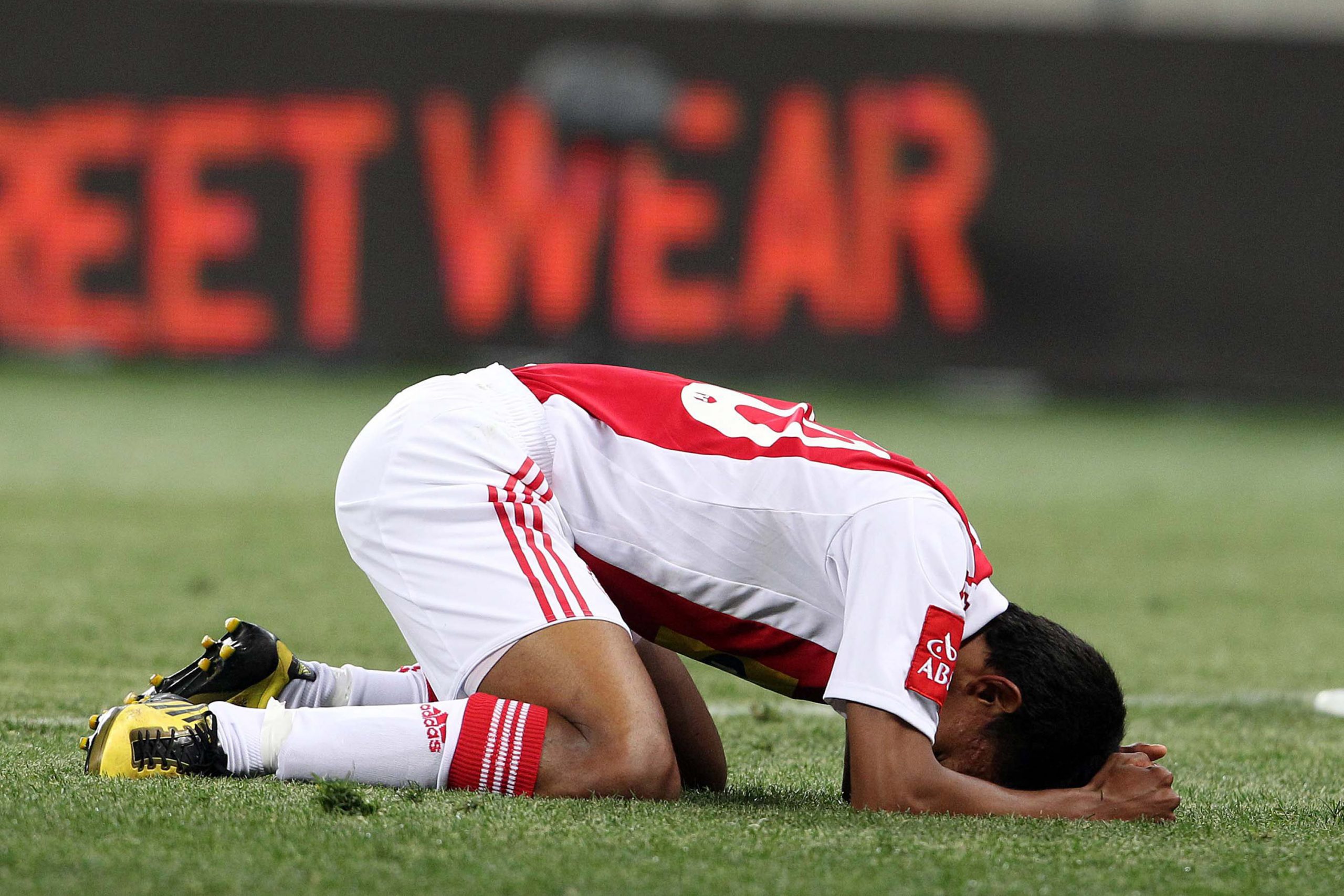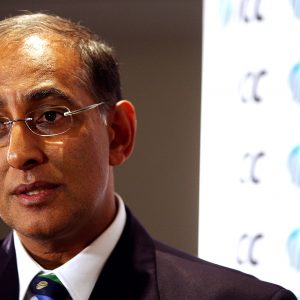The rise and fall of Ajax Cape Town
The club’s formation was a visionary move, marrying South Africa’s talent with the resources and knowledge of the Netherlands. So how did it all go so horribly wrong?
Author:
14 October 2020

Ajax Amsterdam’s investment in South Africa in the late 1990s was the first deal of its kind in the world. It was supposed to herald a new era of opportunity for players on the African continent, as a direct route to Europe.
But to say the results over the past 21 years have been underwhelming would be an understatement. The Dutch club gave a damning indictment of the South African game when it pulled the plug on its failed Cape Town project.
It would be unfair to lay the blame entirely on Ajax Cape Town, according to South African founder Rob Moore, who says the Amsterdam club could have done more. Moore’s unique and visionary blueprint for a global football brand has since been copied with much greater success by Manchester City and the Red Bull group.
After an acrimonious fallout with local partners following a series of management gaffes, the once-shining beacon of hope for young footballers from the gang-ridden areas of Cape Town has now been extinguished.
Related article:
“Ajax [has] concluded that the ambitions and results in Amsterdam are in too great a contrast to the development of the football market in South Africa,” the Dutch club said when announcing the sale of its 51% stake in the Cape Town club.
“Ajax has expressed the ambition to reach the top of European football and, in recent years, the South African football market has not produced enough talent at the level that Ajax strives for. Moreover, Ajax does not see sufficient potential for the future. The club has shifted its focus to other markets.”
In the past two decades, only four products of the Cape Town club’s Ikamva training complex have had minutes in the Ajax Amsterdam first team: Steven Pienaar, Eyong Enoh, Thulani Serero and Lassina Traoré. And if the truth be told, of those only Serero was truly developed at Ikamva from Under-14 up. The rest only finished off their football education in Cape Town.
It is a dismal return for a project buoyed by the early success of Pienaar, who moved to Amsterdam after Ajax Cape Town’s second season in the South African Premier Soccer League in 2000-2001.

The birth of Ajax Cape Town
Moore was the architect of the project. He has gone on to become a highly successful player intermediary to the likes of Pienaar and Benni McCarthy. His Seven Stars club sold McCarthy to Ajax Amsterdam in 1997 and he says it was a question posed to him over a cup of coffee with the Dutch club’s then technical director, Maarten Oldenhof, that prompted the birth of the Cape Town club.
“He said to me, ‘We are members of a league that cannot compete financially with the likes of England, Spain and Italy, who rake in so much more in television revenue. So how do we keep up with them?’” Moore said from his London home.
“I asked him to give me a month to think about it, and from Amsterdam I flew to New York for a publishing conference. But all I could think about the whole time was this question. I was just so excited by it.
“It was in the US that I came up with this concept. If you go just about anywhere in the world, you can get a McDonald’s burger. Same recipe, same ingredients. I wondered what would happen if you tried to do that in the football context.”
Related article:
Moore’s plan was simple. Ajax buys into a club on each continent and exports their incredible knowledge of coaching and developing players in their own unique way into that team. The clubs then draw on the best available talent on their continent, develop the players in the “Ajax way” and provide ready-made assets for the mother club in the Netherlands.
“In the mid-1990s, Ajax had a unique selling point, its famed academy, which was regarded as arguably the best in Europe at developing players. I went back to them and said, ‘You have an exportable product here.’
“The best of the locally developed talent would go to Amsterdam, while the rest would help the local team win silverware and grow the brand in their own market. What’s more, Ajax had this problem whereby they could only really get sponsorship from local Dutch companies as that was their core market. But if you had one or a couple of clubs on each continent, suddenly you are a global brand. You can go to a Coca-Cola and offer jersey sponsorship to them for around the world.”
Moore says the Amsterdam board embraced the idea and so Ajax Cape Town was formed in 1999, with the Dutch club owning 51% and Moore’s Seven Stars and Cape Town Spurs, owned by the Comitis and Efstathiou brothers, merging to own the remaining 49%.

The club’s struggles
Initially, all went well. But as the years went by, Moore says the Amsterdam club began to doubt the concept and did not implement what he saw as key appointments to drive it forward. “They had the Cape Town club and another in Ghana [Ashanti Goldfields], which they did not rebrand. They also had Ajax Orlando in the US,” said Moore.
“But the problem was that they had so many management changes in Amsterdam in the next five or six years that we had to keep going back and reselling the concept to the board. And each management team was suspicious and scathing of what the previous one had done.
“I also told Ajax that they must appoint an ‘Ajax International’ CEO to run the satellite clubs as one point person that all could engage with and reach out to. But, instead, every small problem that came out of Cape Town or Ghana had to be dealt with by the normal Ajax CEO, and what he was really focused on was the performance of his team in Amsterdam the next Saturday.
“It was a huge mistake on their part and it meant that their management kept getting dragged into all these various issues in Cape Town for years and years after.”
Related article:
Moore cites the current success of Manchester City’s satellite clubs around the world – they now have nine in Australia, Japan, the United States, Uruguay, Spain, China, India, Belgium and France – as being the right way to implement his blueprint.
“The difference is that they have Brian Marwood as managing director of the City Group. He is a guy that understands the technical and commercial side of things, and runs that aspect of the business without burdening operations at the Premier League club.”
Moore also says that when he sold his shares and left Ajax Cape Town in 2001 to take on new business challenges abroad, the desire to invest what was required into the project waned.
“Ajax Cape Town lost its way. When you launch an ambitious project, you have to be all in. You can’t be half pregnant. When I left, the Comitis and Efstathious started to cut corners. During their time at Cape Town Spurs, they were never renowned for real investment in infrastructure and the like.
“What held the project together at that stage was John’s [Comitis] streetwise football knowledge, so despite cutting corners the team still performed on the field. But there was an erosion of the values of what Ajax Cape Town was meant to stand for.”
The fall
There were, of course, other revenue streams for Ajax Cape Town. Developing players to sell to the local market for profit was one. But even that well started to dry up a few years ago and was accelerated when the club was relegated at the end of the 2017-2018 campaign, after being docked points for fielding an ineligible player, Tendai Ndoro, in a stunning administrative blunder.
From its talent pool, Abbubaker Mobara and Riyaad Norodien left for Orlando Pirates ahead of the 2016-2017 season. And since then, the only other homegrown talents to make major moves were Rivaldo Coetzee, Mosa Lebusa and Grant Margeman, all to Mamelodi Sundowns. In that time, Ajax Cape Town also sent defender Dean Solomons and winger Leo Thethani to Ajax Amsterdam, but neither made it past the reserves and both were released at the end of last season. They remain clubless.
Perhaps the final straw for Ajax Amsterdam came with another seemingly inexplicable move from the Cape Town management team, when they forced out the head of youth at Ikamva, Hans Vonk, in February. Vonk was Amsterdam’s proxy in the Mother City and the move led to the resignation of their Dutch coach, Andries Ulderink, in protest. With the departure of Vonk, so went the Amsterdam club’s eyes and ears on the ground in Cape Town.
“As a major shareholder, we are dissatisfied with the recent developments and what has been communicated by Ajax Cape Town. In our view, Vonk and Ulderink did an excellent job,” an Ajax Amsterdam spokesperson said at the time.
Related article:
The ability to monitor day to day what was going on was lost, and after that there was little to no communication between the local management group led by chief executive Ari Efstathiou and the Amsterdam club. Their relationship had broken down irrevocably.
The Dutch side ultimately wanted Vonk to lead the club and not Efstathiou, but despite owning 51% of the shares, all the control rested with the minority shareholder. There is no doubt the departure of Ulderink cost Ajax promotion to the premier division at the end of the 2019-2020 season, their comfortable sail into the top flight hit by a massive wave that has yet to be fully explained.
“Unfortunately, things were turbulent behind the scenes,” Vonk said. “Since January, Ari Efstathiou had again taken over all football-related matters, against the wishes of Ajax Amsterdam, Ajax Cape Town’s major shareholder.
“At the beginning of January, an intense internal discussion took place concerning the policies that had been implemented and, as a result, I was suspended because of alleged ‘serious charges of misconduct’. I deny any wrongdoing or actions that could remotely be regarded as serious misconduct.”
The insinuation is of a coup d’état on behalf of Efstathiou to wrestle full control of the South African operation, which he now has, though no longer under the Ajax banner.
Efstathiou has been presented repeatedly with the opportunity to comment to New Frame on the actions of the local management team in the past 12 months, but has declined to do so without offering reasons. Nor has he taken the chance to explain his vision for phoenix club Cape Town Spurs, which will compete in the GladAfrica Championship in the 2020-2021 season.
In a matter of months, two of the three most successful academies in South Africa over the past couple of decades, Ajax Cape Town and Bidvest Wits, have been lost, the latter selling their top-flight status to Limpopo club Tshakhuma Tsha Madzivhandila. This will have an impact all through South African football and potentially affect a generation of young footballers for whom the sport was their escape from the abyss.




